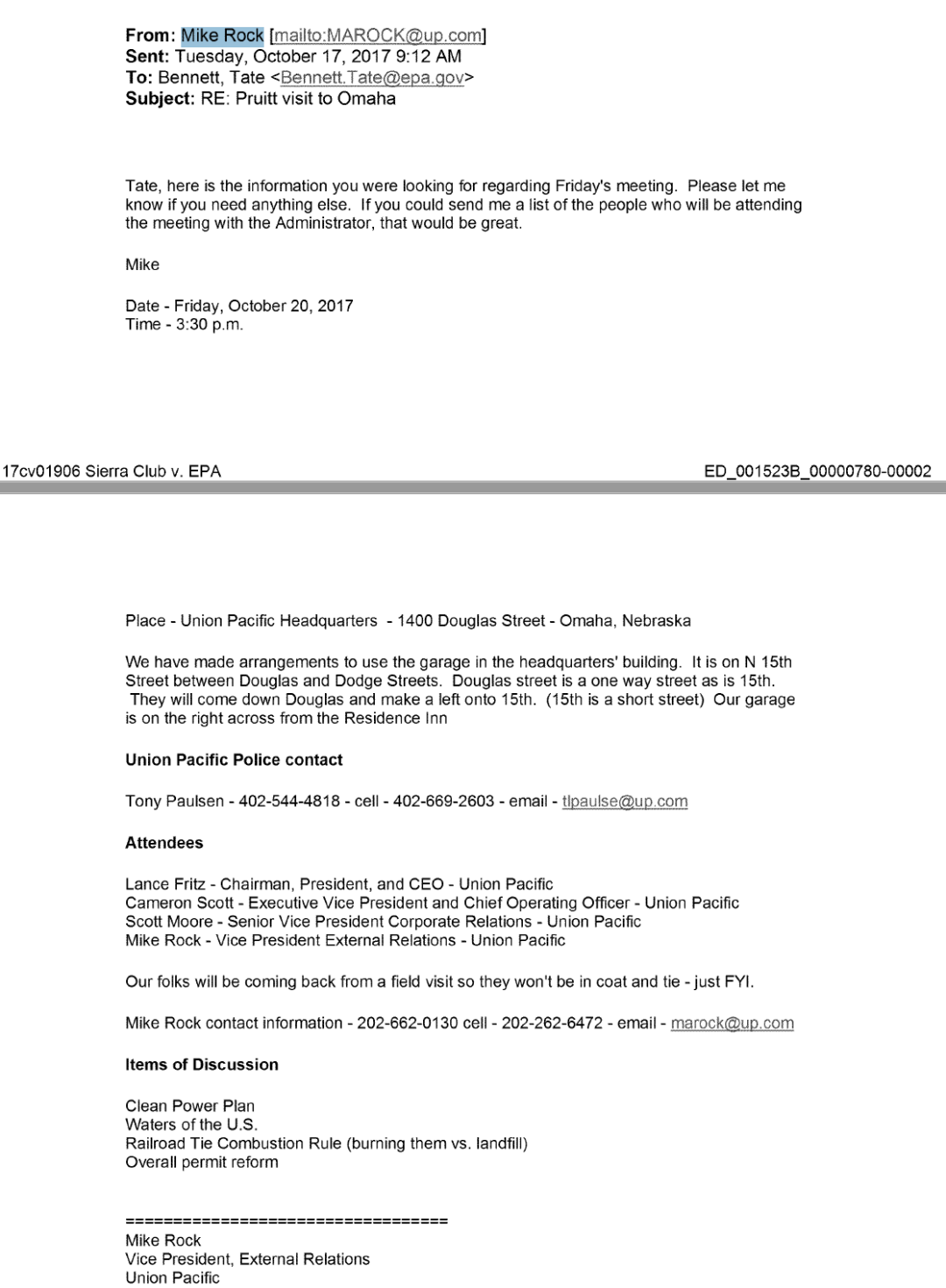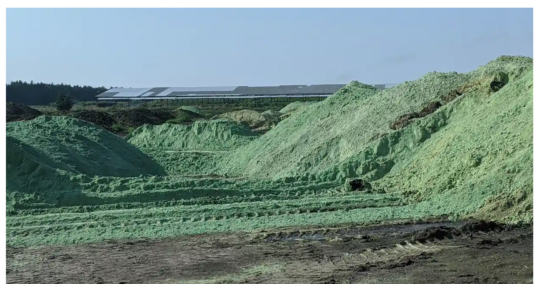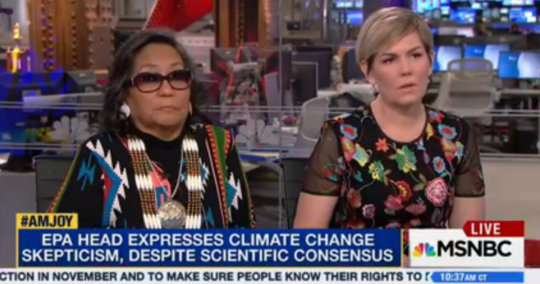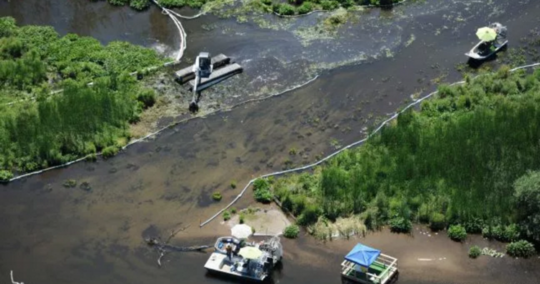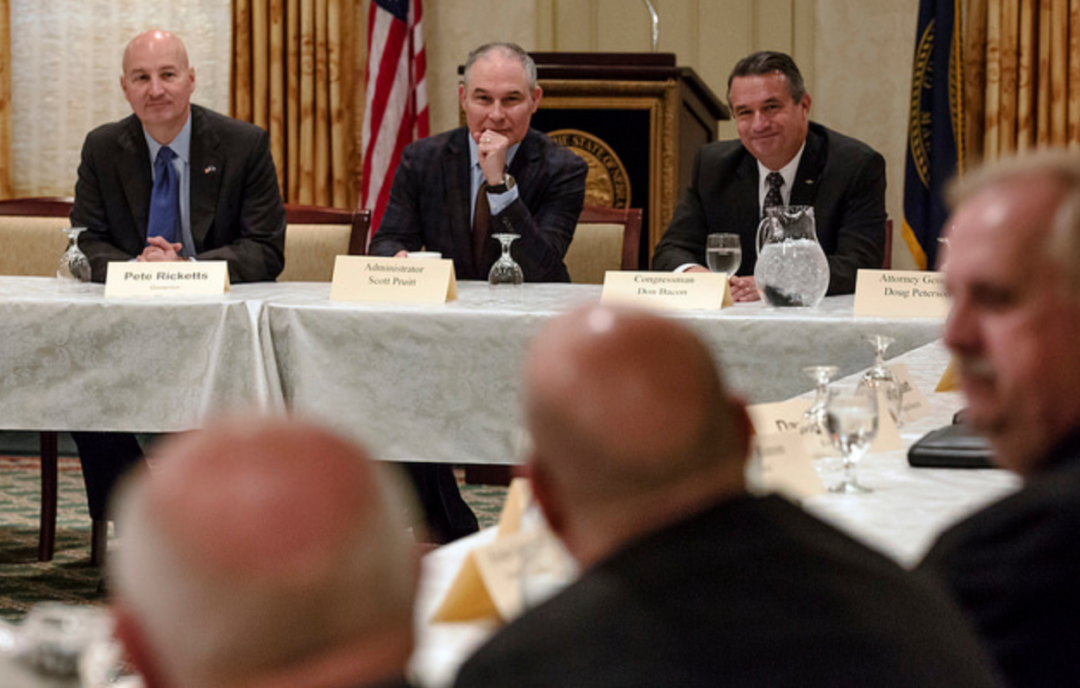

Internal EPA records obtained through a Freedom of Information Act (FOIA) by the Sierra Club have revealed that EPA Administrator Scott Pruitt met in secret with Union Pacific executives in Omaha during his October 2017 trip to Nebraska, to discuss the company’s deregulatory wishlist.
The email exchange between U.P. and EPA officials lists the attendees of the meeting with Pruitt — including Union Pacific chairman, president and CEO Lance Fritz — and the items that would be discussed:
“Attendees
Lance Fritz- Chairman, President, and CEO- Union Pacific
Cameron Scott- Executive Vice President and Chief Operating Officer- Union Pacific
Scott Moore- Senior Vice President Corporate Relations- Union Pacific
Mike Rock- Vice President External Relations- Union Pacific
Items of Discussion
Clean Power Plan
Waters of the U.S.
Railroad Tie Combustion Rule (burning them vs. landfill)
Overall permit reform”
The Railroad Tie Combustion Rule is of particular interest to U.P., because it regulates how railroad companies can dispose of the millions of creosote-treated railroad ties they discard annually in a way that does not violate the Clean Air Act or other environmental protections with the emission of toxic air pollutants generated from the wood preservatives in the ties. Railroad companies generate additional revenue through the sale of used railroad ties for use as a burnable fuel source.
The rail and timber industries were somewhat pleased when in 2016 EPA added creosote-treated railroad ties to its “categorical nonwaste fuels” list. Before this time, EPA stated that creosote-treated railroad ties “contained contaminates at levels that are not comparable to those found in traditional fuels (such as wood or coal)” and prohibited their widespread burning as fuel. This update added creosote-treated ties to the burnable fuels list — but industry was not satisfied, because the update excluded “creosote-borate, copper-naphtenate and copper naphtenate-borate-treated railroad ties,” which they say make up at least 38% of the current potential railroad tie-as-fuel-oil market.
On February 7th — some three months after Pruitt’s meeting with UP and other industry execs — the EPA issued a final rule amending the 2016 definition of what kinds of ties could be burned as fuel, to now include creosote-borate, copper naphthenate, and copper naphthenate-borate ties.
The Clean Power Plan — President Obama’s signature action to reduce emissions from coal-fired power plants — was opposed by the coal industry and other corporate interests. From U.P.’s perspective, the company ships over 200 million tons of coal by rail annually all across the country, and coal shipments generated $2.6 billion in revenue for U.P. in 2017. On October 9, 2017 (just over a week before Pruitt would meet with U.P. execs), the Trump administration announced it would take action to repeal the Clean Power Plan.
The Trump administration has also taken steps to rescind the Waters of the U.S. (WOTUS) rule, which sought to clarify which rivers, streams, lakes and marshes fall under the jurisdiction of the EPA and the Army Corps of Engineers. The rule was also fiercely opposed by many industries. “The only people with reason to oppose the rule are polluters who threaten our clean water,” senior Obama administration White House adviser Brian Deese said upon release of the rule.
“The Chamber of Commerce and the National Association of Manufacturers have joined the American Farm Bureau Federation, Dairy Farmers of America, pesticide manufacturers, mining companies, home builders, state and local governments, water utilities, flood control districts, the timber industry, railroads, real estate developers and even golf course operators among the more than 230 organizations and companies that have listed “Waters of the United States” on federal lobbying disclosures since the administration proposed the rule in March 2014.”
The final topic on the agenda at this meeting — “overall permit reform” — obviously describes the general tone of the discussion that U.P. execs sought with the EPA Administrator.
The revelation of Pruitt’s secret meeting with U.P. execs is just one of many closed-door and not publicly announced meetings Pruitt took with oil and coal industry executives across the country that were uncovered in the FOIA of EPA internal communications.
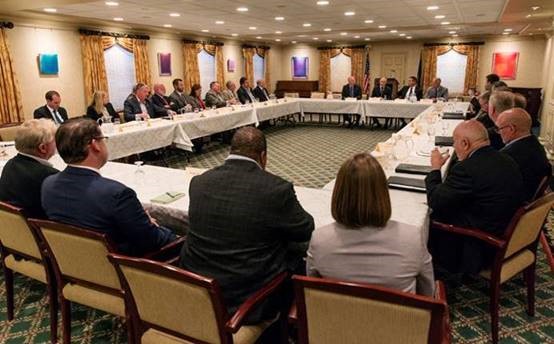

During Pruitt’s visit to Nebraska, the publicly disclosed events at the time included a meeting with Gov. Pete Ricketts and his staff, as well as a “roundtable” on the proposed Waters of the U.S. (WOTUS) rule that included many industry representatives — but lacked any of the state’s leading voices in support of strengthening protections for our water.
Pruitt’s meeting with U.P. execs at the company’s headquarters in Omaha was not mentioned in any media reports about his trip to the Cornhusker state.
Below is the full email exchange between U.P. vice president of external relations Mike Rock and EPA Associate Administrator Tate Bennett:
